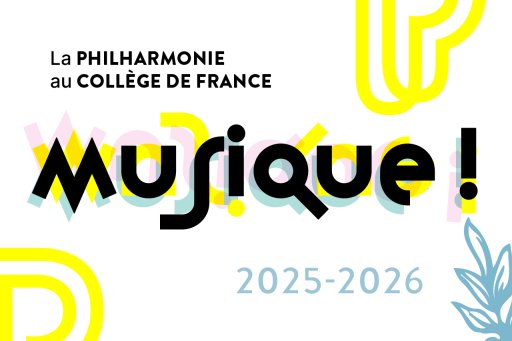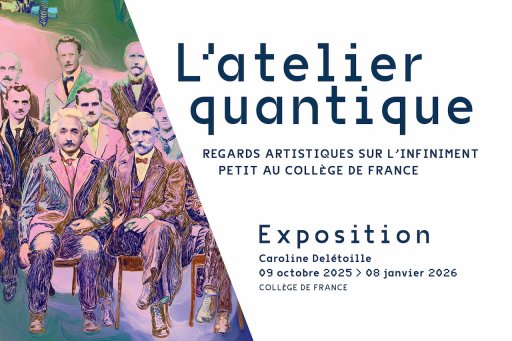Paul Valéry held the Poetics chair at the Collège de France from 1937 until his death in 1945. Previously unpublished, his lectures at the Collège de France were published by Gallimard at the beginning of this year. Professor William Marx, Chair of Comparative Literatures and responsible for the scientific edition of these works, explains the importance of this publication.

Was Paul Valéry's election to the Collège de France in 1937 a major event at the time? ?
William Marx : First and foremost, it was an event for the Collège de France. Today, we're used to seeing artists and writers teaching there, but that wasn't the case in 1937. In those days, all professors were academics. The idea of electing someone from outside the academic world to a chair was a bold one. In fact, it was not an easy election.
Paul Valéry was already not only the most famous French poet of his time, but also a recognized literary theorist, one of the few to produce a theory of form. This was a discipline that universities did not teach, preferring literary history. With the institutionalization of a field of research that did not really exist elsewhere, the Collège de France returned to its role as a forerunner in the teaching of new disciplines.
What does " Cours de poétique "which takes its name from Paul Valéry's chair ?
It's a play on words. The professors who elected him thought that Paul Valéry was going to talk about poetry, since he was a poet. But that wasn't at all what he meant. He spoke of poietics, from the Greek etymology : the study of doing (poïeïn, in Greek), of the way in which the mind acts, creates. It's not just literary creation that interests him, but artistic and intellectual creation in general. He began to reflect on the conditions under which the mind can create, and the processes involved. Starting with a reflection on the brain, the mind and its relationship with the body and the world around it, he analyzed the way in which " works of the mind " are formed. Later, he turned his attention to the " collective works of the mind ", i.e. on a societal level. His research builds a kind of very general trajectory of intellectual life, what I would like to call an anthropology of the mind, rooted in a biology and physiology of the brain, and at the same time embedded in culture and society.

His professorship of Poetics from 1937 to 1945 took place in troubled times. Did this influence his lectures at the Collège de France? ?
Those were very difficult years. The year 1939-1940, with its " drôle de guerre ", was one of the worst : France lived under a permanent threat and a regime of general mobilization. As a result, some of Paul Valéry's lectures did not take place. The Occupation period was hardly any easier. Winters were extremely harsh, and lecture halls were unheated. Valéry was in poor health and often ill.
These events also played a role in the evolution of his thinking. Whereas in the early years of his lectures, his thinking focused on the creation of works of the mind, it then shifted towards a reflection on society, on the question of power, law and authority. It's striking to see how these questions are present from 1941-1942 onwards. At the Liberation, Valéry reflected on the place and function of the writer in society. He gave a magnificent lecture on Voltaire, whom he saw as an apostle of human rights, denouncing the " crimes against humanity " (as he put it) and " against thought ". The rest of the lectures are dedicated to the question of commitment, what he calls the " responsibility of the writer ", at the time of the trials against collaborating writers.
Why did these lectures remain unpublished for eighty years ?
The lectures on poetics given by Paul Valéry at the Collège de France for eight years, from 1937 to 1945, have become something of a legend in the history of French literary criticism. They were attended by a large number of public figures, including Roland Barthes, Maurice Blanchot, Cioran and Yves Bonnefoy. However, almost nothing remained of them. Only his opening lecture and the research and teaching project he had sent to future colleagues prior to his candidacy were published during his lifetime.
His publisher Gaston Gallimard had planned to publish the first year of lectures, which is why he had sent a stenographer to take notes. This transcription was subsequently lost, until I found it in the Gallimard archives. This publication was also Paul Valéry's ambition, but tired by the war, and faced with the huge amount of work involved in putting lecture notes into book form, the project never came to fruition.

What material is published by Gallimard today? ?
Most of Paul Valéry's archives are now held by the Bibliothèque nationale de France (BnF). A folder entitled " Poïétique " contains around two mill five hundred sheets of his preparatory notes for lectures, some of which are extremely well-written. Very anxious at the start of each lecture year, Valéry would write out the first lessons almost in full.It was this material that I began to assemble and transcribe with my team for the publication of what was to be a single volume. The selection represented about a quarter of the BnF file. But just as the volume was ready for publication, a doctoral student working on Valéry alerted me in extremis to the presence of transcriptions in the Bibliothèque littéraire Jacques-Doucet, next to the Panthéon. They were not listed in the library's incomplete electronic catalog, which explains why neither I nor most other Valéry researchers were aware of their existence. They consisted of sixteen complete transcriptions of the final year's lessons. But I also discovered a letter to Doucet from 1938, in which Gaston Gallimard declared that he kept the transcriptions of the first year in the archives of the publishing house : a new lead was launched ! I inform Gallimard's archivist, who, after a complex search, finds these twelve additional lessons. I had to recompose the entire edition I had prepared and add a second volume to accommodate these exceptional documents.
Today's edition brings together these newly-discovered documents and the archives of the BnF, which also contain a number of complete transcriptions, all arranged chronologically, so that you can follow the poetics lecture as a public of the time might have done. Of the two hundred or so lectures Valéry gave at the Collège de France, I have published almost forty that have been fully preserved, mainly from the first and last years, plus the course essays that give a fairly accurate idea of the eight years of his professorship.
Can these lectures now be used to define a theory of poetics of his own? ?
Paul Valéry sees poetics as a theory of the general functioning of the mind. It is first and foremost a global conception of man, in his brain and body, and of his place in society. Literature is present in the lecture, but less so than one might expect, as it is not its main focus. Moreover, when Valéry devoted a session to poetry, he hardly ever prepared it in advance, taking the liberty of improvising : the small number of drafts devoted to literature does not therefore reflect the reality of the teaching given. In any case, Valéry's questions cut across all the human and social sciences. His reasoning often brings him close to the thought and philosophy of Ludwig Wittgenstein , as Jacques Bouveresse himself noted. There are some very advanced reflections on inner language, which enables the mind to dialogue with itself, and on the pragmatics of natural, vernacular language, which enables society to construct collective works of the mind.

Did Paul Valéry's lectures on poetics influence literary and artistic production in the second half of the 20th century? century ?
The influence of these lectures was muted and indirect, since they have remained unpublished. Rather, it was to be found in what Valéry had published during his lifetime. His lectures and articles greatly nourishedRoland Barthes'" nouvelle critique " of the 1960s, which was modeled on what Paul Valéry had produced. But the Collège lessons had the extraordinary advantage of forcing Valéry tosynthesize his thoughtfor the first time. He had long wanted to produce a " System " total : body, mind, society. He had never succeeded in putting it into practice. It was his lectures at the Collège de France that forced him to give coherence to his thought.
Your lecture this year at the Collège de France is entitled " Valéry ou la Littérature ". Was it important for you to highlight this literary figure? ?
When I arrived at the Collège de France, I had already done a lot of work on Paul Valéry, including publishing his Cahiers, and I had the idea of one day giving a lecture on his work. The opportunity now presents itself magnificently, with the publication of Cours de poétique. This is an emblematic author in the history of literature. He represents a unique moment of reflection and awareness of what literature is and can be. No author before him, and perhaps no author after him, has had such a global vision of how writing works. He is an immense poet and a brilliant thinker.
Two moments this year will provide an opportunity to tackle him. My lecture, Valéry ou la littérature, will show the importance of the writer in the history of literature and thought. In June 2023, the Valérycolloquium at the Collège de France will provide an opportunity to take stock, six months after the publication of the Cours de poétique. The idea will be to see what Valéry represents at the Collège de France. Professors from the Collège will be invited to speak alongside specialists in the author's work. The event will also have an artistic dimension, which is very important to me, with the broadcast of a beautiful television recording of Mon Faust from 1971, a play written by Valéry during his years at the Collège de France. The first day of the symposium will close with a public reading of his famous poem La Jeune Parque. It's an artistic and intellectual program that will punctuate Paul Valéry's year at the Collège de France.
Interview by Aurèle Méthivier










